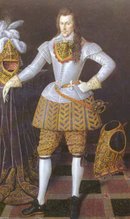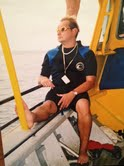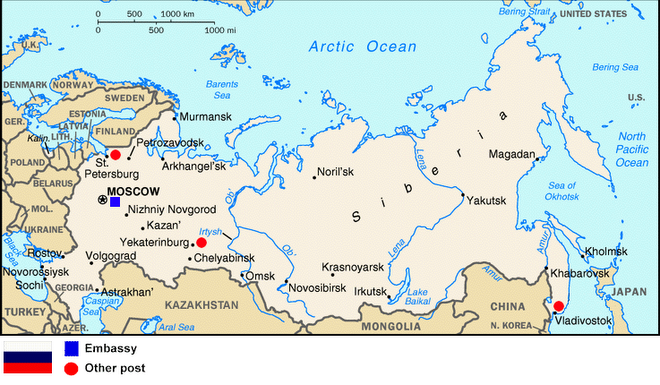 Tuesday 25th March: In St Petersburg this week, I went to see Turandot at the Mariinsky. Turandot is not the most revered of Puccini’s opera’s – perhaps in recent years because people are disappointed that Nessum Dorma – made so famous by Luciano Pavarotti – is indeed only three minutes long; and the ending of the opera is slightly odd.
Tuesday 25th March: In St Petersburg this week, I went to see Turandot at the Mariinsky. Turandot is not the most revered of Puccini’s opera’s – perhaps in recent years because people are disappointed that Nessum Dorma – made so famous by Luciano Pavarotti – is indeed only three minutes long; and the ending of the opera is slightly odd.Puccini died, of course, before the last two scenes were written and these were completed by Franco Alfano. At the opera’s première in 1926, in front of il Duce, the iconic conductor, Toscanini, stopped the orchestra at the point where Pucini’s autograph work ended, turned to the audience and said: “Here the opera finishes, because at this point the Maestro died.” And, it is true, the final plot resolution (where ice-princess Turandot’s heart melts and is united in love for Prince Calaf) is wildly improbable and unconvincing, even for opera.
The late, great Paverotti in his signature piece:
In truth, this was a so-so outing at the Mariinsky; although I must confess I have never yet seen a production of Turandot to rival Andrei Serban’s classic production, in repertoire at the Royal Opera House, Covent Garden, which I first saw 15 years ago and kind of defines Turandot for me (and how I caught the opera bug).
But, to the Mariinsky’s Turandot. Irina Gordei, as Princess Turandot, was sublime – and indeed convincingly forbidding in the first two acts. Yuri Marusin, as the lead tenor, Prince Calaf, was not having a good night. He fluffed his breathing in Nessun Dorma (it is, to be fair, a very, very difficult piece to sing) and faltered badly about a third of the way through and, for a while, his confidence fled him. Was he coming down with a cold I wondered? I don’t know him as a singer, but it seemed to me that he struggled through this performance and lacked power in his voice. His was a disappointing performance. He is also, to be blunt, just far too old for this part: more truck driver than dashing Tatar prince…
Some of the cameo roles, though, were performed very well: especially the comic parts of Ping, Pong and Pang (Andrei Spekhov, Alexander Timchemko – who was very good indeed – and Oleg Balashov). A notable shout-out too to Victor Vikhrov as Emperor Altoum: singing from a gantry up in the gods, his voice had timorous power and sweet reason.
I was delighted to catch up with the news, BTW, that the Mariinsky closure for restoration (which was scheduled for the end of this season), has been postponed until the end of 2009. Partly this is because the temporary home being built for the Mariinsky opera and ballet companies is behind schedule but mostly, I suspect, because the Russian authorities leaned on the Mariinsky not to close this grand old theatre before the Main Stage of the Bolshoi has re-opened (November 2009).
Thursday 27th March: Tosca at the Stanislavsky-Nemirovich-Danchenko. This is the first time I had seen this production and I was initially a little apprehensive; because Tosca calls out for a truly onctueuse presentation, whereas the S-N-D’s, love them though I do, tend to be more sparse and stripped down to visual minimums (although often strikingly so). Actually it was a success with a set design that was both minimalist but also evocative of Rome’s lavish opulence.
Tosca is another punishing role for a soprano and I thought Irina Arkadeva was only partly successful. For me her voice has too much coloratura for Puccini and now and then I thought her tendency to warble quite distracting (but this might have been to cover up some rather loose pronunciation of the Italian libretto). I have two wonderful recordings of this opera, with the Tosca role being performed, respectively by Callas and Angela Gheorghiu (the latter, Romanian diva I have yet to see perform live but her voice is extraordinary). So it is a really hard role for a younger soprano and, judging by the sour look on her face at the curtain call, I think Arkadeva realized that she hadn’t quite pulled it off that night.
But contrast, Mikhail Vekya, as the tenor lead, Cavaradossi, was just brilliant and his was a complete triumph of a performance – now if only he has sung Calaf in St Pete’s! – his performance was also so much more enjoyable because he was clearly having the time of his life. At the curtain call he was so Italian (and I mean that in a good way), I really had to check the program again to confirm he was Russian: he has a tremendous and infectious enthusiasm for his craft.
Also giving a superb performance was Aleksey Shishlaev as the con brio baddie, Baron Scarpia. His end of Act One - Tosca, nel tuo cuor s'annida Scarpia – while the chorus accompanies in a
 Te Deum was just riveting and bliss to experience. Overall I thought this a highly rewarding evening and a production I would recommend to anyone coming to Moscow and wanting, tentatively, to dip their virgin toe in the waters of opera.
Te Deum was just riveting and bliss to experience. Overall I thought this a highly rewarding evening and a production I would recommend to anyone coming to Moscow and wanting, tentatively, to dip their virgin toe in the waters of opera.While in St Pete's I went to a splendid classical music CD/DVD specialist I know; hard by the wonderful Astoria Hotel, where I stay. There I treated myself to some pieces that I have heard but don't own; including another piece by Estonian composer, Arvo Pärt, to whose work I am becomming addicted.
I also bought a DVD of Philip Glass's opera Satyagraha. Now almost 30 years old, this established Glass's reputation as enfant terrible of musique minimale. I have yet to carve out the right evening to listen to it. "Inspired by the life of Ghandi", it has no plot. And the libretto is in Sanskrit. It is not performed very often.





No comments:
Post a Comment